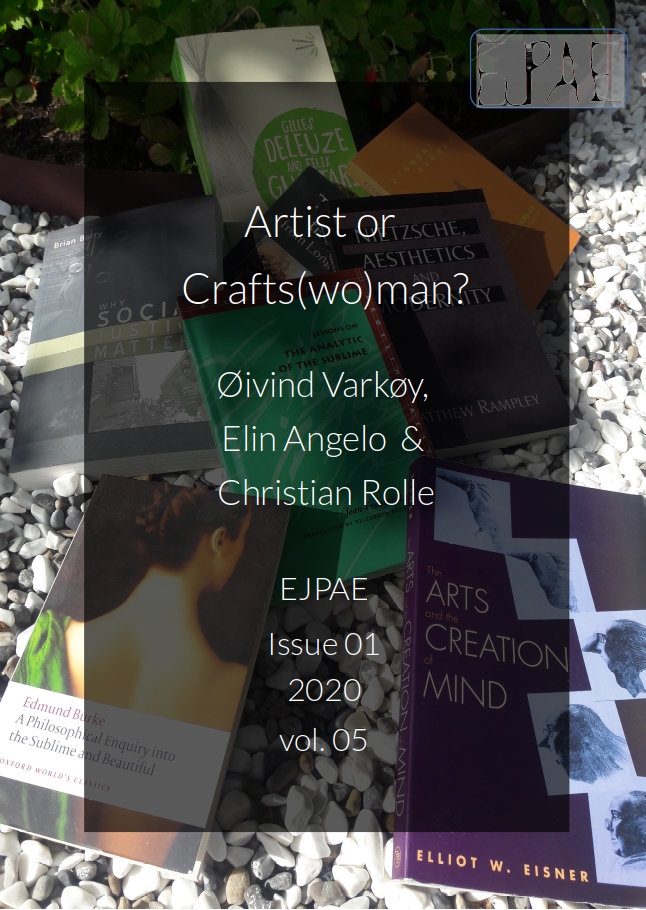Artist or Crafts(wo)man?
DOI:
https://doi.org/10.5281/zenodo.3940997Keywords:
crafts(wo)man, artist, homo faber, animal laborans, poiesis and praxis, inspiration, professional thinking, philosophy of artAbstract
Are orchestral musicians artists or crafts(wo)men? This article offers a principal discussion of the concepts of artist and crafts(wo)man, as well as the relation between these concepts, from a philosophical point of view.
We discuss the concept of ‘the crafts(wo)man’ based on Richard Sennett’s discussions of this concept, in which Hannah Arendt’s thinking plays an important role. Then, we turn our attention to Aristotle’s distinction between poiesis and praxis, as well as his concept of techné, as discussed by Martin Heidegger, and Plato’s discussion of inspiration as a basic fundament for artistic performance. Next, we address Walter Benjamin’s discussion on artwork in an age of technological reproducibility, and we draw lines between characteristic aspects in Sennett’s argument and the tension between professional thinking and the philosophy of art.
This article is part of the ongoing project, Discourses of Academization and the Music Profession in Higher Music Education (DAPHME), conducted by a team of senior researchers in Sweden, Norway and Germany and founded by the Swedish Riksbank. The overall purpose of DAPHME is to investigate how processes of academisation affect students at institutes of higher music education in Europe, especially the education of orchestral musicians of the Western classical tradition.

Downloads
Published
Issue
Section
License
EJPAE provides immediate open access to all its published content. Users do not need to register or pay to read content.
https://creativecommons.org/licenses/by/4.0/
Authors of content published in European Journal of Philosophy in Arts Education (EJPAE) retain the copyright to their works. Content is free to be used by anyone as long as you "[...] give appropriate credit, provide a link to the license, and indicate if changes were made. You may do so in any reasonable manner, but not in any way that suggests the licensor endorses you or your use." and "No additional restrictions — You may not apply legal terms or technological measures that legally restrict others from doing anything the license permits." (from the Creative Commons licence agreement)
EJPAE does not charge any author or publication fees.
Authors are encouraged to deposit the final published version of their article for self-archiving (author's personal website) and/or archiving in an institutional repository immediately upon publication.




